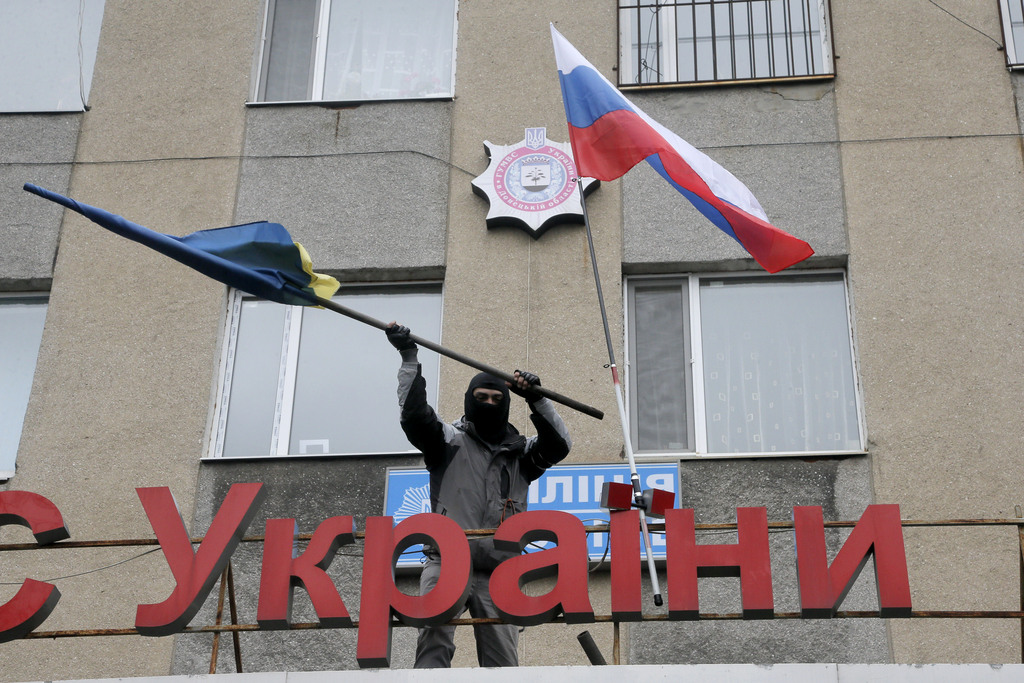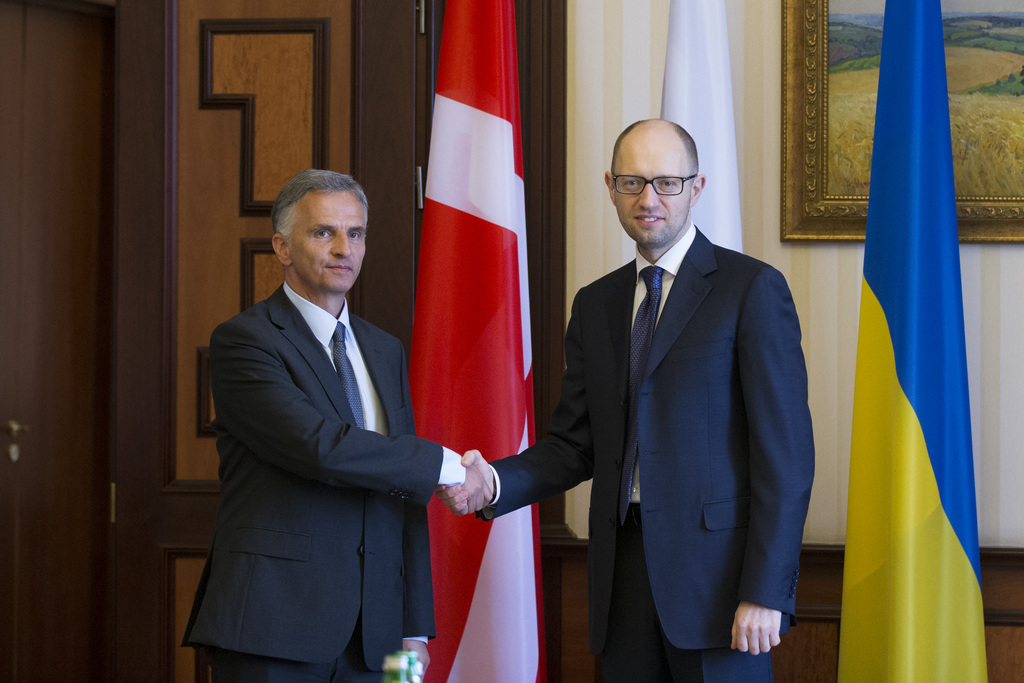
Ukraine crisis puts Swiss OSCE chair in spotlight

The success of the mission by the Organization for Security and Co-operation in Europe is measured by whether it is able to help de-escalate the situation in Ukraine, according to the Swiss ambassador to the OSCE, Thomas Greminger.
In a syndicated interview with the Tages-Anzeiger and Der Bund newspapers, Greminger says the role of the OSCE should not be burdened with too many expectations.
“The OSCE can only try to defuse tensions, provide ideas and mediate,” he said.
Switzerland this year holds the presidency of the 57-nation body with Greminger as chairman of the Vienna-based permanent OSCE Council and Swiss Foreign Minister Didier Burkhalter as acting president.
Greminger says the crisis in Ukraine is a “blessing and a curse” for the organisation as it allows the 57-nation body to step out of the shadows and increase its international profile which became blurred after the fall of the Berlin Wall.
“Over the past weeks and months the OSCE has been able to show that it has the tools to develop confidence building measures. We succeeded in deploying the first major OSCE observer missions since the 1990s.”
However, the crisis is a setback for fundamental tenets of international law and planned reforms of OSCE decision-making structure, according to Greminger.
Switzerland has been given mixed reviews so far for its role as head of the organisation.
Greminger says criticism from two key OSCE members, Russia and the United States, can be hard, but it shows that Switzerland is an impartial chair.

More
Burkhalter seeks to defuse Ukrainian crisis
Eyes and ears
On Monday, Foreign Minister Burkhalter visited the OSCE monitoring mission in Ukraine.
He said the number of international observers would be increased to about 300 from 85 currently deployed in about ten cities in Ukraine.
Burkhalter described the observers as “the eyes and ears of the international community” as they gathered information, establishing facts and reporting in an impartial manner.
He also stressed the importance of the OSCE mission for the observation of the planned presidential elections in Ukraine next month, according to an official statement.
In talks with members of the Ukrainian government in the capital, Kiev, Burkhalter called on all sides in the conflict to de-escalate the situation.
He stressed the importance of dialogue and welcomed a planned meeting in Geneva on Thursday of representatives from the European Union, Russia, the US and Ukraine.

In compliance with the JTI standards
More: SWI swissinfo.ch certified by the Journalism Trust Initiative


























You can find an overview of ongoing debates with our journalists here . Please join us!
If you want to start a conversation about a topic raised in this article or want to report factual errors, email us at english@swissinfo.ch.